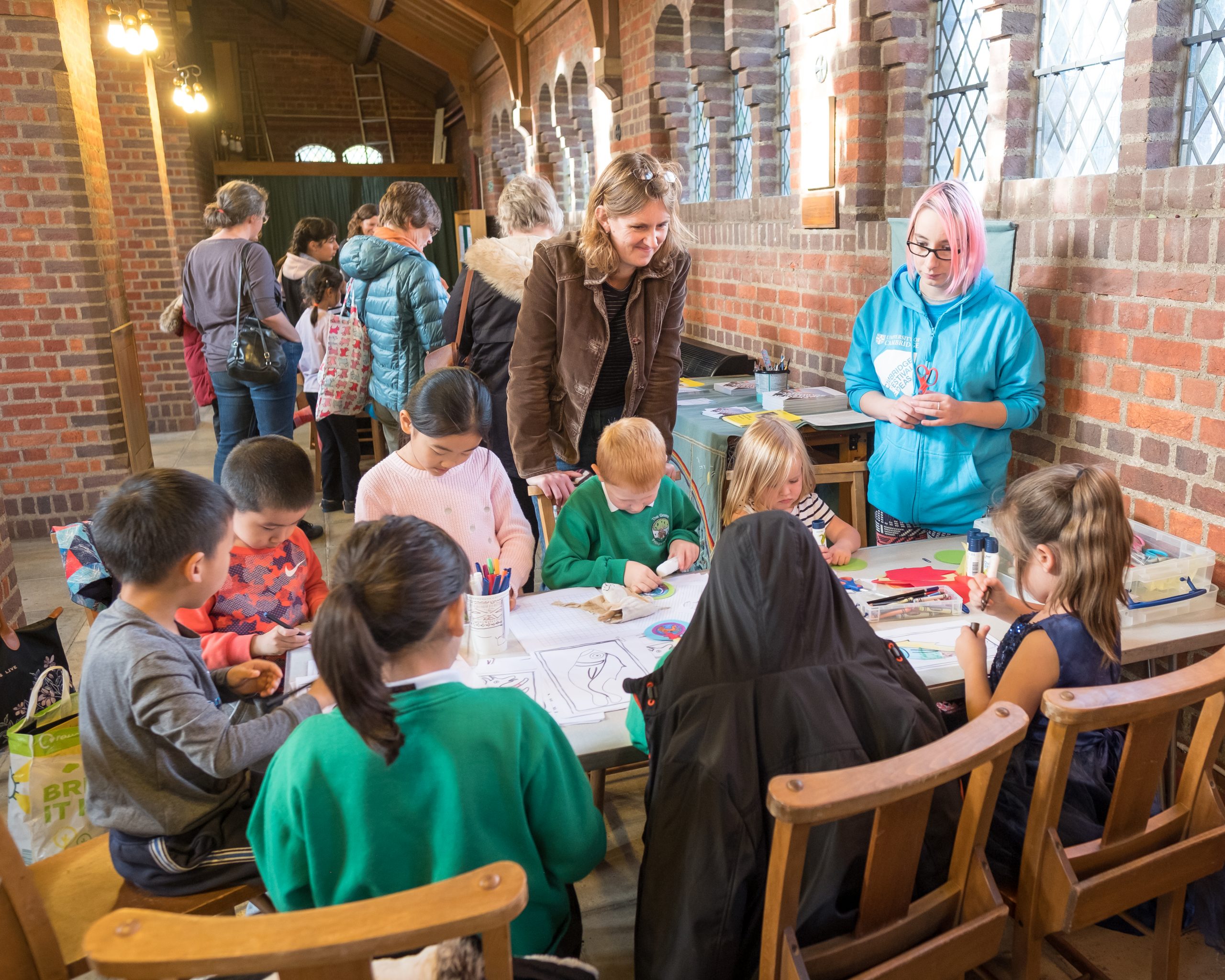
With no age cap, Gates Cambridge attracts scholars from a rich range of backgrounds and experience, some of whom are parents.
I benefit from young people’s ideas and they benefit from my experience. Everyone has something to contribute.
Aditi Vedi
When Iryna Shuvalova [2016] did her master’s in the US she couldn’t bring her daughter with her. That on its own was hard, but during Iryna’s time in the US the Ukrainan revolution started and Russia invaded Crimea. “I was constantly worrying, sitting on my suitcases and ready to go at any point.” Fortunately, her family was safe, but it’s an experience she doesn’t want to go through again.
For her PhD at Cambridge, her daughter, now 15, was able to come with her and that made all the difference.
In large part this was made possible by the Gates Cambridge Trust’s family support package. As the Gates Cambridge Scholarship is keen to attract the best minds in the world, it has no age cap and that means some candidates have families when they apply.
The Trust offers a family allowance for up to two children, which helps parents with the costs of childcare and other costs of supporting their children while they are with them at Cambridge. It also has a parental leave policy which enables scholars to take up to six months off during which they continue to receive their monthly stipend. In addition the Gates Cambridge Scholars Council organises events for families, such as next week's Family and Partners Tea.
Having the Gates Cambridge scholarship and the family allowance meant Iryna could get a visa for her daughter to come to the UK.
The money helped her to pay for a school uniform, a bike and food for her daughter as well as after school classes. “That enabled me to focus on my studies,” she says.
During her time at Cambridge Iryna, who is a single parent, says her department and supervisor were very supportive. “That has been priceless,” says Iryna, who has just finished her PhD in Slavonic Studies on songs about the war in Donbas.
Iryna says she could not have done her PhD without her daughter’s presence and support. “She has been very kind and understanding and has been encouraging me constantly,” she says.
She adds that her daughter has benefited a lot from life in Cambridge, although the initial transition was difficult. “She was 12 when we moved and it is not easy being 12 anyway,” says Iryna. “I am really proud of how she coped. Her first year was quite difficult, but she quickly developed a huge circle of friends.”
She says her daughter has learnt a lot from the international, multicultural nature of her school. “She learnt a lot from her friends about the normality of diversity,” says Iryna.
On the run
Chioma Ngonadi [2015] had to leave her children in Nigeria when she began her PhD in Archaeology at Cambridge because of visa issues. At the time they were two years old and just nine months. It took three months to sort the visas out. “It was really difficult,” says Chioma. “But what could I do?”
Having her children with her at Cambridge has been a vital part of her PhD and the family allowance has helped enormously with childcare costs.
For much of her PhD Chioma has been managing on her own, but her husband, who is incredibly supportive, visits as often as he can to assist her. She says: “He is also in academia and has been so wonderful taking care of our children, our house and juggling with his job in Nigeria. Without his support and encouragement, it would have been extremely difficult for me to succeed.”
Chioma also has a very good childminder and a circle of friends who help each other out with babysitting. She adds that her supervisors Professor Martin Jones and Dr Matthew Davies have been extremely supportive.
Like many working parents, Chioma has had to juggle her work, childcare, travel and personal life, which has been challenging. “I was constantly on the run,” she says.
Despite this, Chioma has not only been able to do her PhD but also to get involved in public engagement, for instance, through Soapbox Science, the Cambridge Science Festival and the Cambridge Festival of Ideas among other events. “I feel I have had so many opportunities coming to Cambridge and I intend to use my current position to create space for others and build bridges through Archaeology,” she says.
Becoming a parent
Other Gates Cambridge Scholars have become parents while at Cambridge, sometimes unexpectedly.
Nathan Hawkins [2017] became a dad after he started his studies at Cambridge.
Nathan now has two very young children, one born last autumn. He and his wife had been trying for children for some time before Nathan started his MPhil at Cambridge, for which he received a Gates Cambridge Scholarship. The family support offered by Gates Cambridge was an important factor in his decision to stay on at Cambridge to do his PhD in Philosophy which is focused on the concept of truth and how it was understood by German mathematician-cum-philosopher Gottlob Frege.
While at Cambridge Nathan has been running a metaphysics group and organised a philosophy and maths conference in addition to tutoring undergraduates in logic.
Nathan met his wife in New Zealand and lived there for a decade before coming to Cambridge. He has taken three months’ paternity leave for both children and says that, for international students who don’t have their family around, paternity leave is vital. “My wife cannot call her parents for help. I am really needed,” he states.
Aditi Vedi didn’t plan to have children at the start of her PhD. She and her husband had been trying for a family for some time and had decided they needed to get on with their lives.
She was just about to start her PhD when she discovered she was pregnant. Gates Cambridge was very flexible, allowing her to defer her scholarship for a year and she was able to stay on at the hospital in London where she was working as a paediatric oncologist. “It was a lesson in humility,” she says. “You think you are almost invincible when it comes to career planning. You plan your life to the day, but biology reminds you that you cannot always plan everything.”
She then became pregnant again after the first year of her PhD in Haemotology.
Aditi [2015] says Gates Cambridge’s family allowance has been crucial for her family with two children, aged one and three. Although she is working full time at Addenbrooke’s, because she is a PhD student she only qualifies for 15 hours free childcare for her three year old, rather than 30 hours. Many other PhD students are in a similar position.
Given difficulties around working part time on the PhD, Aditi has continued to work more or less full time, but does flexi hours so she can have Wednesdays with her children. That means she often finishes her working day, goes home to put her children to bed and then goes back to the hospital to work until late into the night. It’s exhausting, but it means she has time with her children and gets her work done.
Aditi says she is not aware of any other scholarships that offer the same level of family support as Gates Cambridge and she adds that the fact that there is no age limit on applying for the scholarship means the university is able to attract a much more diverse range of students with a rich mix of experience. She, for instance, has 12 years’ experience of working as a doctor. She says: “I benefit from young people’s ideas and they benefit from my experience. Everyone has something to contribute.”
*Picture credit: Cambridge Festival of Ideas
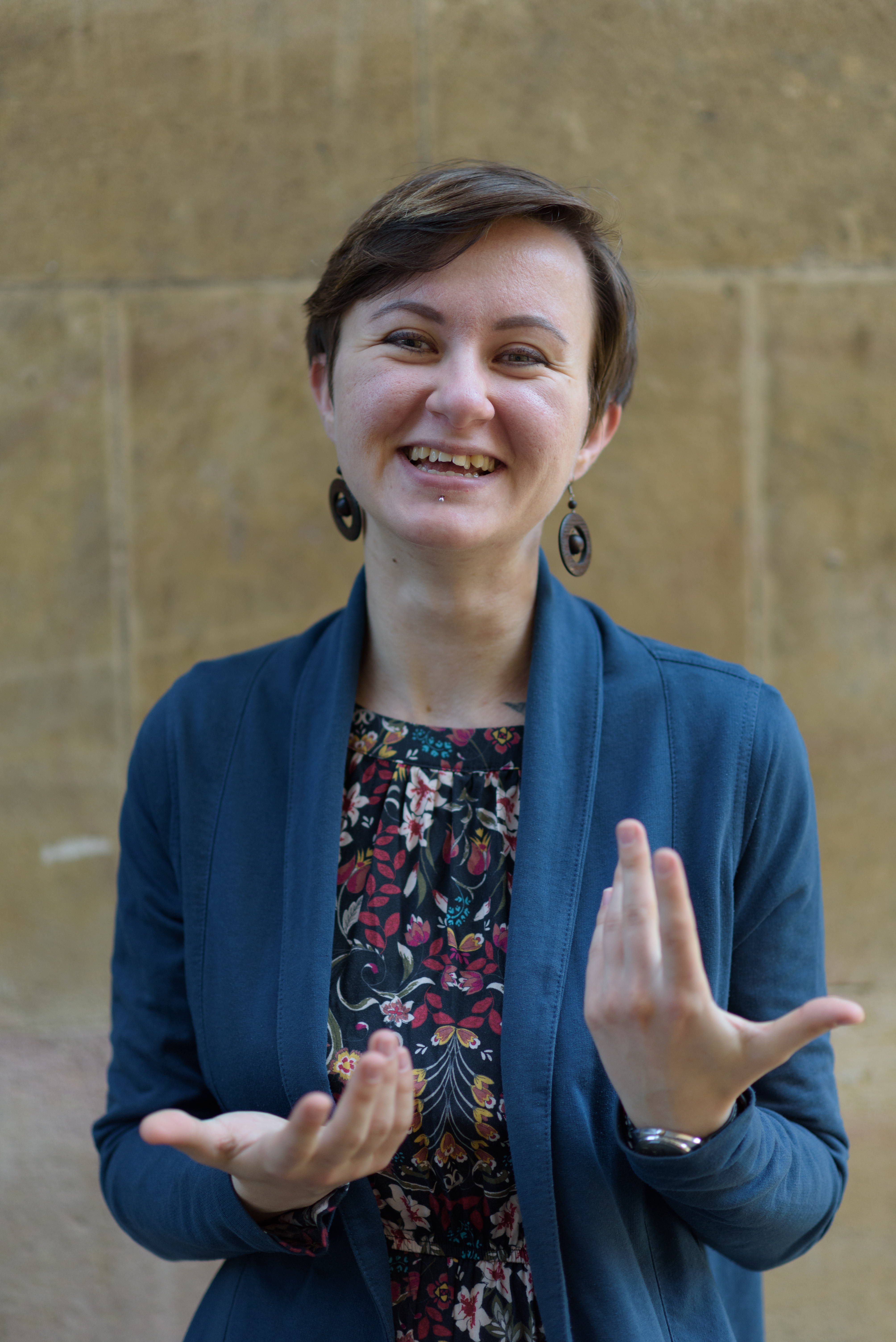
Iryna Shuvalova
- Alumni
- Ukraine
- 2016 PhD Slavonic Studies
- St John's College
Born in 1986 in Kyiv, Ukraine, Iryna Shuvalova has authored five award-winning books of poetry, including Pray to the Empty Wells (Lost Horse Press, 2019). Her most recent and fifth book of poetry Stoneorchardwoods (2020) has been named book of the year by Ukraine’s LitAktsent Prize for Literature and received the Special Prize of the Lviv UNESCO City of Literature Book Award. In 2009, she co-edited 120 Pages of ‘Sodom,’ the first anthology of queer writing in Ukraine. Her poetry has been translated into 25 languages and published internationally, including in Modern Poetry in Translation, The White Review, Literary Hub, Die Zeit, and others. She is a member of PEN Ukraine.
Shuvalova's work as a translator includes translations into Ukrainian of novels by Yann Martel and Virginia Woolf, as well as poems by Ted Hughes, Louise Glück, and Alice Oswald. She has also translated into English the writing of modern and contemporary Ukrainian poets, including Lesia Ukrainka, Mykola Bazhan, Iurii Klen, Mykola Zerov, Ostap Slyvynskyi, and others. Her translations appeared in Words Without Borders, Modern Poetry in Translation, and Ambit, as well as multiple anthologies.
Shuvalova's research interests lie at the intersection of culture and politics in Eastern Europe. Her forthcoming academic monograph 'Donbas Is My Sparta': Identity and Belonging in the Songs of the Russo-Ukrainian War explores the impact of the war on Ukrainian society. She holds a PhD in Slavonic Studies from the University of Cambridge and an MA in Comparative Literature from Dartmouth College, where she was a Fulbright scholar. In the summer of 2023, she will be joining the University of Oslo as a postdoctoral research fellow.
Previous Education
Taras Shevchenko National University of Kyiv
Dartmouth College
Links
https://irynashuvalova.com
https://cambridge.academia.edu/IrynaShuvalova
https://ua.linkedin.com/in/shuvalova
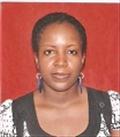
Chioma Ngonadi
- Alumni
- Nigeria
- 2015 PhD Archaeology
- King's College
I was born and raised in Anambra State, southeastern Nigeria and bagged a First Class Honors in Archaeology from University of Nigeria, Nsukka. In 2010, I completed my MA in Archaeology from the University of Dar es Salaam, Tanzania funded by SIDA/SAREC through African Archaeology Network. My MA research was on a comparative study of the pottery from sites in coastal Tanzania. I focused on Mwangia pottery, a variant of Early Iron Working pottery (EIW) and compared it to the subsequent Triangular Incised Wares (TIW) tradition. Analysis of pottery showed that TIW has closer cultural affinities to Mwangia than the preceding traditions (Limbo and Kwale). My love for archaeology has taken me to Comoros Island, Uganda and Tanzania. At Cambridge, my PhD thesis seeks to examine the origin and development of farming over the longue duree in Lejja,southeastern Nigeria. Through ethnography, survey and excavation, my study will establish and outline a cultural sequence with focus on the last 3,000 years and thus analyze broad scale changes in agricultural practices of these communities over this period. I am excited to join the Gates community and I look forward to developing my skills and knowledge in order to have a lasting career in Archaeology.INTERESTS: Reading, writing, volunteering, watching football, interesting movies, scrabble, visiting archaeological sites and museums.
Previous Education
UNIVERSITY OF NIGERIA, NSUKKA
UNIVERSITY OF DAR ES SALAAM
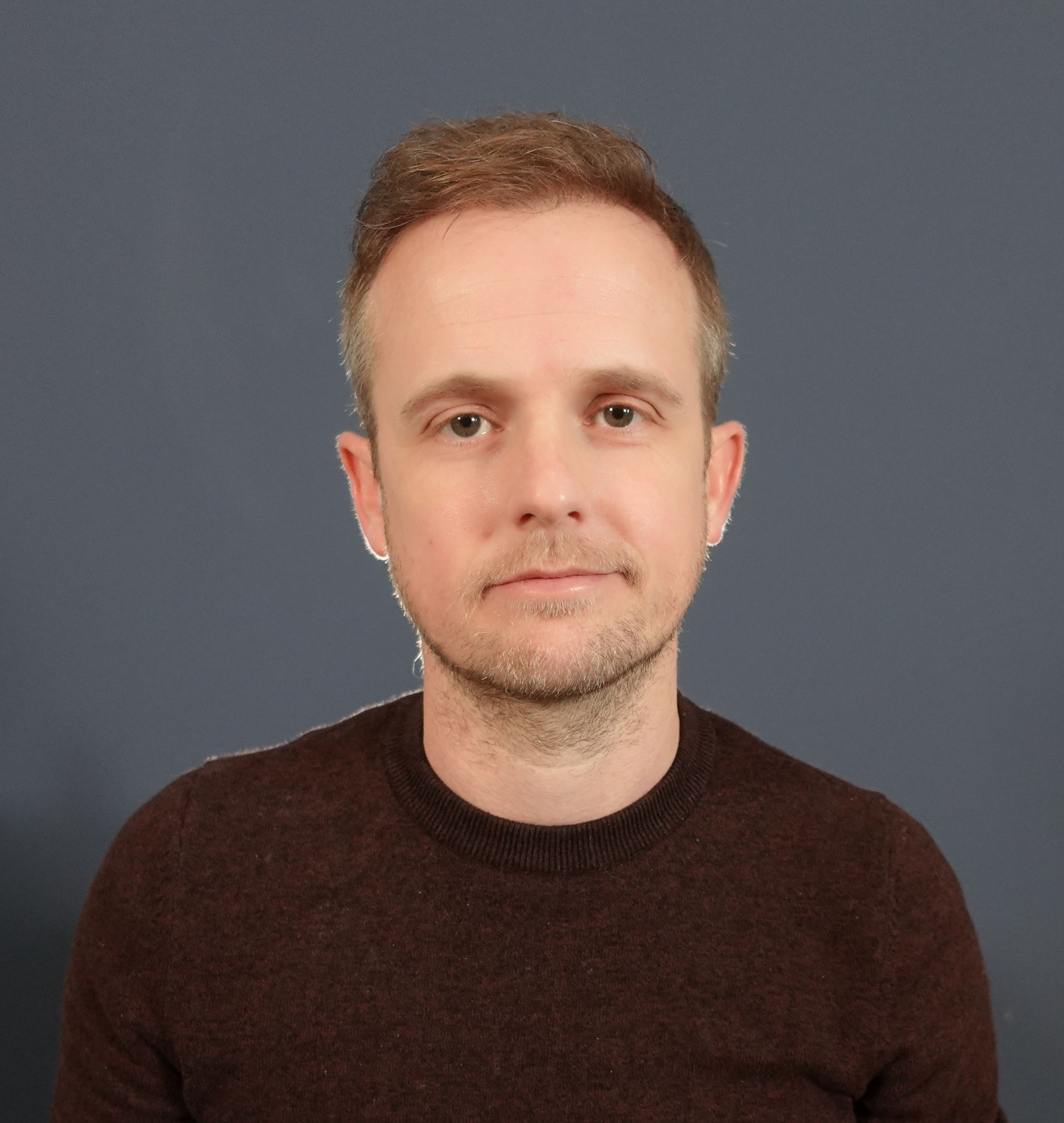
Nathan Hawkins
- Alumni
- New Zealand
- 2016 MPhil Philosophy
2017 PhD Philosophy - Gonville and Caius College
‘What is truth?’ Pontius Pilate (John 18:38)
It’s an old question. But one that has taken on new importance in an age increasingly labelled ‘post-truth’. One core part of the question is what determines truth. Some claim that truth is a subjective notion, perhaps determined by an individual's perspective. Others think truth is objective, determined by the configuration of the world. Each approach raises more questions. How does an individual's perspective/the world determine what is true? Are there really two notions here that have become confused, or is only one plausible? It also seems difficult to see how either approach explains mathematical truths such as 2+2=4.
My PhD thesis studies the concept of truth. In particular, the way the notion was understood by German mathematician-cum-philosopher Gottlob Frege. Frege holds a unique perspective on truth. He claims that truth is indefinable. And yet he also holds that it is a substantial notion that grounds all factual claims. This gives him a unique perspective on the role of logic. While science studies truths, logic studies truth itself. For logic describes the laws of truth, which are the laws by which we reason. So logic, for Frege, is the fundamental science.
This suggests a middle road. Perhaps truth resides (first and foremost) in the inter-subjective experience of correct thinking. In the law-like principles of valid reasoning. 2+2=4 is true, not because the world is arranged a certain way, nor because we have collectively or individually decided to treat this claim as true, but because we cannot reason that it is false. It is true because it is an absolute inter-subjective fact. Truth is a notion grounded in the interaction between thinking subject(s) and thought about object(s).
(While in New Zealand, I studied a BA with a double major in Philosophy and Mathematics, as well as an MA Philosophy. Since arriving in Cambridge I have completed an MPhil in Philosophy (also as a Gates scholar) and am now engaged in a PhD.)
Previous Education
Massey University
University of Cambridge
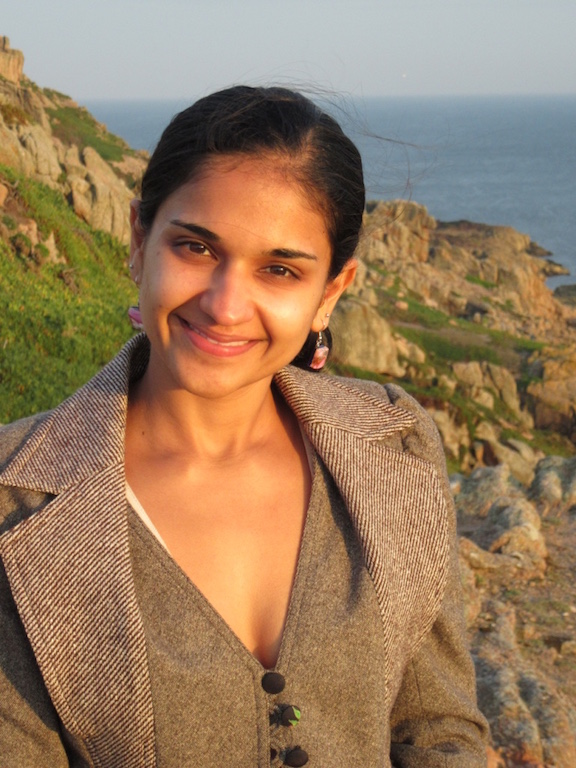
Aditi Vedi
- Alumni
- Australia
- 2015 PhD Haematology
- Trinity College
Children have an innate ability to bring joy to and captivate those around them with their vitality and innocence. My passion for paediatric health and welfare stems from their resilience and eternal optimism - improving the lives of children is my core belief and central motivation for paediatric oncology. I derive my childhood and education from Australia, cultural heritage from India and passion for children’s healthcare and equity of access from both. I graduated with a Bachelor of Science, Medicine and Surgery from the University of New South Wales, and Masters in Medicine from the University of Sydney. Currently I am a clinical fellow with the Royal Marsden NHS Foundation Trust, developing new treatments for refractory cancers, having previously trained in paediatrics and haematology/oncology with Sydney Children’s Hospital. My research in Cambridge will focus on childhood leukaemia, and explore the role quiescent cancer stem cells play in refractory and relapsed disease. My greater goal is to continue paediatric stem cell research in Australia as a clinician scientist.
Previous Education
University of Sydney
University of New South Wales












